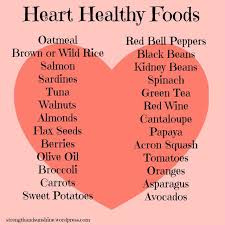
Diagnosed with Cancer? Your two greatest challenges are understanding cancer and understanding possible side effects from chemo and radiation. Knowledge is Power!
Learn about conventional, complementary, and integrative therapies.
Dealing with treatment side effects? Learn about evidence-based therapies to alleviate your symptoms.
Click the orange button to the right to learn more.
- You are here:
- Home »
- Blog »
- side effects ID and prevention »
- Cancer Clinical Trials- Heart Failure?
Cancer Clinical Trials- Heart Failure?

Cancer clinical trials are said to be the “gold standard” for developing new therapies for cancer patients. Unfortunately, study after study documents deficiencies, bias, and other failings of clinical trails for cancer therapies.
The study linked and excerpted below describes how cancer clinical trials are fraught with documented heart damage that does not get reported.
I was diagnosed with an incurable blood cancer called multiple myeloma in early 1994. I underwent the FDA approved standard-of-care therapy plan of induction therapy. I followed induction therapy with an autologous stem cell transplant. The ASCT included both melphalan and busulphan. Both regimens are cardiotoxic.
My ASCT was preceded by two rounds of high-dose cytoxan. Another cardiotoxic chemo regimen. I was diagnosed with chemotherapy-induced cardiomyopathy in early 2011 fully 15 years after my induction therapy and ASCT.
“Providers, both cancer and noncancer, generally put cardiotoxicity in the box of anthracyclines and radiation, but particularly over the last decade, we’ve begun to understand it’s well beyond any one class of drugs,” Addison said.”
Did my oncologists not know about the damage they were potentially causing my heart? Did they think I wasn’t going to live very long anyhow?
How much responsibility should oncologists have if they run a clinical trial or prescribe therapy that causes heart damage to patients?
Which chemotherapy regimens for the treatment of multiple myeloma are cardiotoxic?
- Doxorubicin (Adriamycin):
- Mechanism: Anthracycline antibiotic that intercalates DNA.
- Cardiotoxic Effects: Can cause dose-dependent cardiomyopathy leading to congestive heart failure (CHF). Chronic cardiotoxicity can be cumulative and is a well-known risk associated with anthracyclines.
- Cyclophosphamide:
- Mechanism: Alkylating agent.
- Cardiotoxic Effects: High-dose cyclophosphamide can cause acute cardiotoxicity, including arrhythmias, myocarditis, and rarely, pericardial effusion and hemorrhagic myocarditis.
- Thalidomide:
- Mechanism: Immunomodulatory drug.
- Cardiotoxic Effects: Known to increase the risk of thromboembolic events, which can lead to myocardial infarction and stroke.
- Bortezomib (Velcade):
- Mechanism: Proteasome inhibitor.
- Cardiotoxic Effects: Associated with the risk of heart failure, left ventricular dysfunction, and arrhythmias.
- Carfilzomib (Kyprolis):
- Mechanism: Proteasome inhibitor.
- Cardiotoxic Effects: Can cause heart failure, myocardial ischemia, hypertension, and arrhythmias.
- Lenalidomide (Revlimid):
- Mechanism: Immunomodulatory drug.
- Cardiotoxic Effects: Associated with an increased risk of thromboembolic events, which can lead to cardiovascular complications.
- Melphalan:
- Mechanism: Alkylating agent.
- Cardiotoxic Effects: Generally less cardiotoxic than others, but high doses used in conditioning regimens for stem cell transplantation can contribute to cardiotoxicity.
- Daratumumab:
- Mechanism: Monoclonal antibody targeting CD38.
- Cardiotoxic Effects: Generally considered to have a lower risk of cardiotoxicity but may still pose risks when combined with other cardiotoxic agents.
Combination Regimens
- VD (Bortezomib + Dexamethasone):
- Includes bortezomib, which has associated cardiotoxicity risks as mentioned.
- VDT (Bortezomib + Dexamethasone + Thalidomide):
- Combines bortezomib and thalidomide, both of which have cardiotoxic effects.
- VRD (Bortezomib + Lenalidomide + Dexamethasone):
- Combines bortezomib and lenalidomide, both of which have cardiotoxic effects.
- KRD (Carfilzomib + Lenalidomide + Dexamethasone):
- Combines carfilzomib and lenalidomide, both of which have cardiotoxic effects.
- DTPACE (Dexamethasone, Thalidomide, Cisplatin, Doxorubicin, Cyclophosphamide, Etoposide):
- Includes doxorubicin and cyclophosphamide, both of which are cardiotoxic.
If you are about to enroll in a cancer clinical trial or if you are a MM patient about to undergo any of the cardiotoxic regimens listed above, consider embarking on a heart healthy lifestyle, especially while you are undergoing any cardiotoxic regimens.
Consider:
- Heart healthy nutrition-
- Heart healthy supplementation-
- Heart healthy lifestyle therapies such as moderate, daily exercise-
If you would like to learn more about evidence-based non-conventional therapies to enhance heart health email me at David.PeopleBeatingCancer@gmail.com
Thank you,
David Emerson
- Cancer Survivor
- Cancer Coach
- Director PeopleBeatingCancer
Recommended Reading:
- Cardiac Rehabilitation- 7 Best Yoga Poses for a Healthy Heart
- Whole-Body Hyperthermia aka Sauna for Heart Disease
- Heart Failure-Cardiac Rehabilitation & Exercise
Glaring Gap in CV Event Reporting in Pivotal Cancer Trials
“Clinical trials supporting FDA approval of contemporary cancer therapies frequently failed to capture major adverse cardiovascular events (MACE) and, when they did, reported rates 2.6-fold lower than noncancer trials, new research shows.
Overall, 51.3% of trials did not report MACE, with that number reaching 57.6% in trials enrolling patients with baseline CVD.
Nearly 40% of trials did not report any CVD events in follow-up, the authors report online February 10 in the Journal of the American College of Cardiology.
“Even in drug classes where there were established or emerging associations with cardiotoxic events, often there were no reported heart events or cardiovascular events across years of follow-up in trials that examined hundreds or even thousands of patients…
‘How do we really know for sure that the trial actually reflects the true risk of heart events?’ to which I told him, ‘It’s difficult to know’,” he said.
“I think many of us rely heavily on what we see in the trials, particularly when they make it to the top journals, and quite frankly, we generally take it at face value,” Addison observed…
Over 148,138 person-years of follow-up (median trial duration, 30 months), there were 1148 incidents of MACE
- 375 heart failure,
- 253 myocardial infarctions,
- 180 strokes,
- 65 atrial fibrillation,
- 29 coronary revascularizations, and 2
- 46 CVD deaths.
MACE rates were higher in the intervention group than in the control group (792 vs 356; P < .01).
Among the 64 trials that excluded patients with baseline CVD, there were 269 incidents of MACE…
“Closer collaboration between cardiologists and cancer physicians is needed to better determine true cardiac risks among patients treated with these drugs.”
Part of the problem may be that some of the toxicities, particularly cardiovascular, may not emerge for years, he said. Participant screening for the trials also likely removed patients with high cardiovascular risk…
The underreported CVD events may also reflect the rapidly changing profile of cardiovascular toxicities associated with novel anticancer therapies.
“Providers, both cancer and noncancer, generally put cardiotoxicity in the box of anthracyclines and radiation, but particularly over the last decade, we’ve begun to understand it’s well beyond any one class of drugs,” Addison said…
“Initial drugs like anthracyclines or Herceptin in cardio-oncology were associated with systolic cardiac dysfunction, whereas the majority of issues we see in the cardio-oncology clinics today are vascular, metabolic, arrhythmogenic, and inflammatory,” he told theheart.org | Medscape Cardiology. “Echocardiography misses the big and increasingly complex picture.”
His group, for example, has been studying myocarditis associated with immunotherapies, but none of the clinical trials require screening or surveillance for myocarditis with a cardiac biomarker like troponin.
The group also recently identified 303 deaths in patients exposed to ibrutinib, a drug that revolutionized the treatment of several B-cell malignancies but is associated with higher rates of atrial fibrillation, which is also associated with increased bleeding risk. “So there’s a little bit of a double whammy there, given that we often treat atrial fibrillation with anticoagulation and where we can cause complications in patients,” Moslehi noted…


